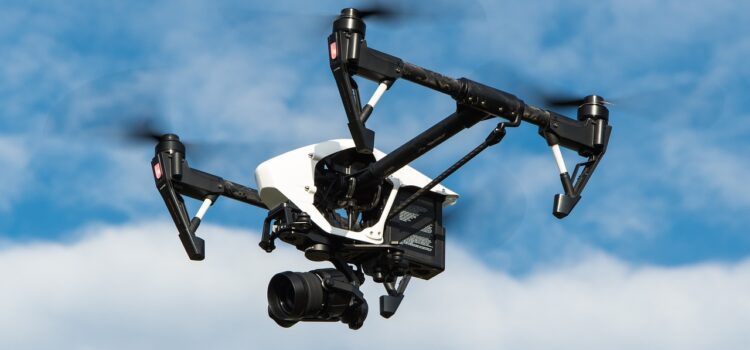
DJI of Shenzhen, China manufactures both consumer and commercial drones as well as camera systems, gimbal stabilizers, propulsion systems, enterprise software applications, aerial agriculture equipment and flight control systems.
Lawmakers like Elise Stefanik, a Republican congresswoman close to President Donald Trump, are advocating for a ban on DJI products using FCC-approved communication infrastructure in the US. Such an action would prevent new releases of such drones from using FCC infrastructure.
NDAA
The US House of Representatives recently passed the National Defense Authorization Act (NDAA), with an amendment that could hamper future DJI sales within its borders. Rep. Elise Stefanik of New York Republican has introduced legislation called the Countering CCP Drones Act which will require an “appropriate national security agency” to conduct a risk analysis review on DJI craft in order to ensure they do not pass user data to Chinese intelligence services. But the National Defense Authorization Act doesn’t specify which agency can or will conduct the vetting, giving any interested agency one year to decide whether DJI products can run on federal networks and to add the company to an “entity list,” effectively banning its UAVs in America.
DJI strongly denounced the bill as baseless and motivated by xenophobic fear, noting that it has already sent documents to Customs and Border Protection showing it does not manufacture its drones in Xinjiang where China is accused of forcibly detaining ethnic Uyghurs. Furthermore, the company works closely with Department of Commerce to verify suppliers do not work with unsavory Chinese firms and that there will not be new drones released this year that might require users to invest more money or accept lower quality aerial shots instead.
UFLPA
Implemented in December 2021 and signed into law by President Biden, the UFLPA prohibits imports of goods produced or manufactured wholly or partly in the XUAR or by entities identified on a “UFLPA Entity List,” updated regularly. Under this law there is a presumption that any product imported from these locations was made using forced labor unless CBP determines otherwise.
CBP launched a website in March 2023 to monitor shipments denied or released under the UFLPA. The site provides breakdowns by industry by country of origin and provides metrics like percentage denied and average months between decisions being made. Industries currently affected include aluminum, textiles/apparel/apparel and automotive parts and components.
FLETF recently issued an updated UFLPA enforcement strategy that stressed the need for businesses across industries – energy, manufacturing, agriculture and healthcare industries among others – to prepare themselves for increased scrutiny of products or raw materials with connections to XUAR or Entity List companies. Furthermore, other countries’ efforts at combatting forced labor in XUAR will likely have limited global impact unless steps are taken to prevent re-exports of blocked items into US marketplace.
Xinjiang Forced Labor Prevention Act
The UFLPA provides a rebuttable presumption that any goods, wares or articles produced wholly or partly in China’s Xinjiang Autonomous Region using forced labor practices are ineligible for entry into the United States. This presumption is supported by testimonies of former internment camp detainees as well as satellite imagery, government and media reports as well as official leaked documents from People’s Republic of China which confirm state-sponsored and widespread forced labor practices throughout Xinjiang.
DJI claimed in a letter sent out to distributors that Customs and Border Protection (CBP) is holding back some shipments due to the UFLPA. While its Xinjiang factories comply with both international labor standards and US laws, DJI fears being singled out due to being Chinese company and that CBP hasn’t appointed an agency yet to assess their products.
Construction and infrastructure projects reliant on DJI drones for site surveys, monitoring work progress and risk evaluation would be hard-hit by an outright ban, as these drones provide invaluable data collection services and enable filmmakers and content creators to achieve aerial shots that would otherwise be costly or impossible with other devices. Luckily, the National Defense Authorization Act contains a provision that gives DJI one year to demonstrate to an appropriate agency that their drones don’t pose any national security risks to the United States.
Countering CCP Drones Act
Elise Stefanik (R-NY), introduced The Countering CCP Drones Act with an aim of restricting Chinese drone usage within U.S. borders. If passed, this bill would add DJI’s products to the FCC Covered List in order to prevent future products from entering our communications infrastructure. Bill sponsors have voiced concerns that China may use DJI drones for spying or other malicious purposes.
The bill has come under intense criticism from both drone industry professionals and first responders, specifically its critics who fear a ban on DJI drones would result in shortages, which would increase prices for consumers and business owners and could slow technological advancements in the sector.
However, both houses of Congress have yet to approve of the National Defense Authorization Act in its final form; thus it could be altered considerably during a conference committee between House and Senate versions before going back to President Biden for approval.
However, the Countering CCP Drones Act will likely pass in the House. After that, it’s up to the Senate to decide whether or not it includes it in their version of NDAA; if it does so, negotiations between White House officials and congressional leaders and representatives may ensue to reach a final consensus agreement on its terms.










